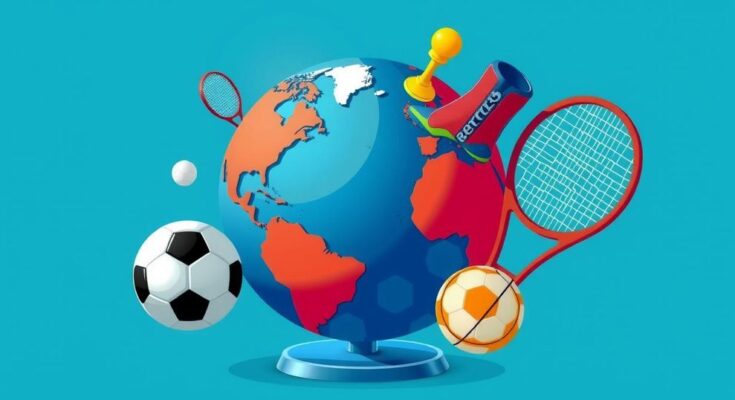In June, I had the privilege of witnessing the USA vs. India cricket match in New York—a city not typically associated with this sport. Coincidentally, a colleague attended a baseball game between the New York Mets and the Philadelphia Phillies in London, where baseball is also somewhat foreign. These unique events highlight how sports can serve as a powerful medium for cultural diplomacy, allowing different communities to connect amid prevailing global tensions.
Cricket, for instance, rooted deeply in countries like India and England, is gaining traction in the US. The match in New York showcased this growing interest, uniting fans in a vibrant atmosphere that celebrated not just the sport but the spirit of goodwill and cultural exchange. Such gatherings remind us of the joy sports can bring, fostering camaraderie across borders.
Likewise, the baseball game in London was a jubilant cultural exchange, bringing a slice of American tradition to a nation that primarily favours football, cricket, and rugby. This event transcended mere sporting competition—it was about understanding, appreciation, and integrating different cultures through the universal language of sports.
Events like these illustrate sport’s potential to bridge cultural divides and foster understanding. Different cultural backgrounds converged, allowing fans to connect and appreciate their differences while sharing a love for the game. This bond is invaluable in our increasingly globalised society.
From a young age, sports can teach critical life skills such as teamwork and respect. Programs, like the USPORT-Kyrgyzstan project, strive to foster cross-cultural understanding among youth through sports, demonstrating their efficacy in promoting peace and dialogue in ethnically diverse areas. These initiatives successfully engage young individuals, promoting respect and cooperation through shared sporting experiences.
While financial incentives often dominate professional sports, many athletes are driven by pure passion. This love for the game unites individuals across cultural lines, showcasing how shared values can build lasting friendships. The Olympics epitomise this spirit, where athletes proudly represent their nations, celebrating diversity and resilience on a grand stage.
Collegiate athletics also embody the power of sports to cultivate inclusivity and understanding. Student-athletes from varying backgrounds can forge connections that extend beyond sports, creating a community that celebrates diversity. This is evident not just in major programs but across D-II and D-III institutions that welcome talents from across the globe, enhancing lives through athletic participation.
In a world marked by division, sports uniquely bridge gaps by reminding us of our humanity and shared values. Games like the USA vs. India cricket match and the Mets vs. Phillies in London are not just competitions; they are grand celebrations of cultural richness and mutual respect. These gatherings underscore the necessity of weaving sports into the fabric of diplomacy.
As we progress, it’s crucial to harness sports as a tool for fostering understanding. Engaging through these experiences facilitates collaboration within our communities, allowing us to celebrate diversity and forge stronger connections. The memories of those matches reaffirm my belief in sports’ unifying power, urging us to advocate for inclusiveness through our love for the game. Together, we can cultivate a more compassionate world.
Sports exemplify a unique tool for global diplomacy, allowing diverse cultures to connect. Events like USA vs. India cricket and Mets vs. Phillies baseball demonstrate the bridging of divides through shared experiences. Youth sports programmes contribute to cross-cultural understanding, while collegiate athletics foster inclusivity. By embracing sports, we can build stronger communities and promote mutual respect on a global scale.
The exploration of sports as a vehicle for diplomacy reveals its immense potential in uniting diverse cultures. By engaging in events like international matches, shared experiences can foster understanding and community. As we leverage sports for cultural exchange, we pave the way for a world that embraces diversity and celebrates our shared humanity, ultimately creating stronger, inclusive societies.
Original Source: www.forbes.com



